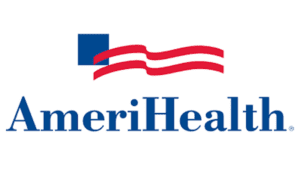Biden Administration Issues New Guidance to Address the Expiring “Outbreak Period” Rule
Last May, the Departments of Treasury and Labor issued a regulation pausing the deadlines associated with many employer-sponsored health plan requirements due to the COVID-19 pandemic. The rule created an “outbreak period” that started on March 1, 2020, and was intended to last for 60 days past the end of the COVOD-19 national emergency. During this period,…
January 1 Plans Need to File Their Medicare Prescription Drug Disclosure with CMS Soon
Many employers have a deadline coming up soon to complete their annual Medicare prescription drug disclosure with the federal Centers for Medicare and Medicaid Services (CMS). Businesses that offer prescription drug coverage to Medicare Part D-eligible beneficiaries (including active employees, dependents, and retirees) as part of their benefit plan offerings need to provide annual disclosures to both those plan…
Consolidated Appropriations Act, 2021 Provides COVID-19 Relief and Impacts Employee Benefits
On December 27, 2020, President Trump signed the “Consolidated Appropriations Act, 2021” (CAA) into law. The almost 5,593-page long measure includes $900 billion of coronavirus-related economic relief. It extends many existing COVID-19 assistance programs with an employee benefits impact, like the Paycheck Protection Program loans and paid leave requirements and tax credits. The law also…
Independence Blue Cross: COVID-19 Vaccine Coverage, Prior Authorizations, Webcast FAQ
At Independence Blue Cross, we are committed to giving you the information you need to understand the ever changing COVID‑19 vaccine environment. EMPLOYER AND CONSUMER BUSINESS COVID‑19 vaccine coverage We are hopeful that once the COVID-19 vaccine start to become widely available we will be able to beat the virus, and are pleased to share details…
COVID-19 VACCINE – Can Employers Make this a Requirement for their Workforce?
Pfizer recently announced that its experimental COVID-19 vaccine appears to be more than 90% effective. While digesting this positive news, many employers have wondered if they may require employees to vaccinate once doses are accessible to the general public. The short answer is yes, companies probably will be able to ask its workforce to get…
Guide to Medical Loss Ratio (MLR) Rebates
What are Medical Loss Ratio (MLR) Rebates? The Affordable Care Act requires health insurance carriers to spend at least 80-85 percent of premium dollars on medical care and healthcare quality improvement. If they don’t meet this medical loss ratio (MLR) obligation, they must give affected customers a rebate. Rebates must be distributed by the carriers…
Trump Administration Proposes New Rule Concerning Health Care Sharing Ministries and Direct Primary Care
Last week, the Internal Revenue Service (IRS) issued a proposed regulation to expand the definition of qualified medical expenses. The expansion would allow employers to reimburse employees for direct primary care arrangement fees and health care sharing ministry shares. It would also allow reimbursement for premiums for other types of insurance contracts that cover medical care and…
Overview of New Federal Regulatory Guidance That Impacts Group Health Plans
Over the past month, the federal government issued multiple pieces of regulatory guidance setting limits, fees, and other requirements for group health plans in the year ahead. Here’s a break-down of all of the new requirements. 2020 PCORI Fee Payments for Group Health Plans The Patient-Centered Outcomes Research Institute (PCORI) fee was supposed to expire in 2020,…
CARES Act Provision Gives More Flexibility to FSA and HSA Funds
Thanks to provisions in the CARES Act — a federal law passed in March 2020 to help give people relief in the wake of the impacts of the coronavirus pandemic — your FSA and HSA dollars are now a little bit easier to spend. The new rules essentially mean you no longer need a doctor’s prescription to use your…
Agencies Extend Employee Benefit Plan Deadlines Providing Relief from COVID-19
The Employee Benefits Security Administration teamed up with the IRS to extend employee benefit plan deadlines to provide relief and mitigate compliance issues for benefit plan sponsors, participants and beneficiaries impacted by the COVID-19 pandemic. Extended Employee Benefit Plan Deadline Guidance in Three Documents: A Joint Notice by EBSA and the IRS that extends time frames affecting…
AmeriHealth Provides Instructions for Deferred Payment Plan for Fully Insured Small Group and Large Group Customers
While AmeriHealth encourages all customers who are able to pay their premiums on time to continue to do so, they understand the toll the COVID‑19 crisis is taking on many businesses. AmeriHealth wants to help mutual customers in need with the opportunity to take advantage of a AmeriHealth Deferred Payment Program for fully insured small…
CARES ACT STIMULUS BILL BECOMES LAW
On March 27, 2020, President Trump signed H.R. 748, the Coronavirus Aid, Relief, and Economic Security (CARES) Act into law. It is the third, and by far the most extensive, measure enacted so far to provide relief and aid related to the COVID-19 pandemic. In includes economic and health coverage protection provisions for individuals, employers, and key…




